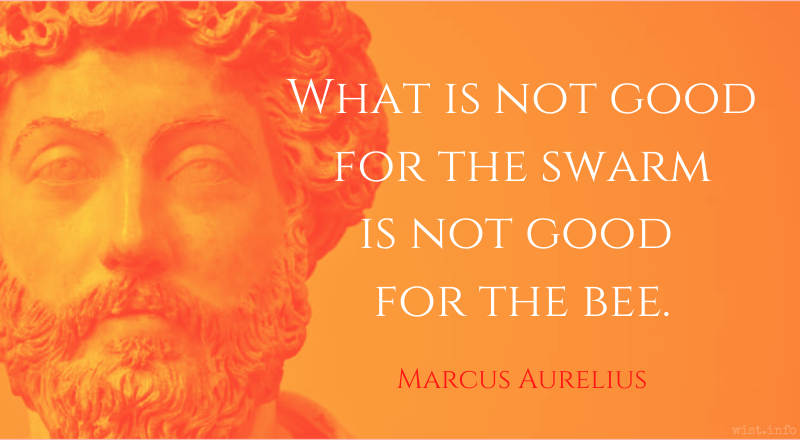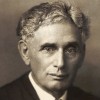[Fascism] imagines the masses not as a pluralistic citizenry but as a primal horde whose power can be awakened by playing upon atavistic feelings of hatred and belonging. Its chosen leader must exhibit strength: his refusal to compromise and readiness to attack are seen as signs of tough-mindedness, while any concern for constitutionality or the rule of law are disdained as signs of weakness. The most powerful myth, however, is that of the embattled collective. Critics are branded as traitors, while those who do not fit the criteria for inclusion are vilified as outsiders, terrorists, and criminals.
Peter E, Gordon (b. 1966) American intellectual historian
“Why Historical Analogy Matters,” New York Review of Books (7 Jan 2020)
(Source)
Quotations about:
collective
Note not all quotations have been tagged, so Search may find additional quotes on this topic.
What is not good for the swarm is not good for the bee.
[Τὸ τῷ σμήνει μὴ συμφέρον οὐδὲ τῇ μελίσσῃ συμφέρει.]
Marcus Aurelius (AD 121-180) Roman emperor (161-180), Stoic philosopher
Meditations, Book 6, #54 (2nd C AD)
Original here. Alt. trans.:
- "That which is not good for the beehive, cannot be good for the bee." [tr. Casaubon (1634); numbered 49]
- "What does not benefit the hive is no benefit to the bee." [tr. Farquharson (1944)]
- "That which is not for the interest of the whole swarm is not for the interest of the bee." [tr. Collier]
- "What injures the hive injures the bee." [tr. Hays (2002)]
- "What is not good for the hive is not good for the bee."
Strong, responsible unions are essential to industrial fair play. Without them the labor bargain is wholly one-sided. The parties to the labor contract must be nearly equal in strength if justice is to be worked out, and this means that the workers must be organized and that their organizations must be recognized by employers as a condition precedent to industrial peace.
Louis Brandeis (1856-1941) American lawyer, activist, Supreme Court Justice (1916-39)
In The Curse of Bigness: Miscellaneous Papers of Louis D. Brandeis [ed. Fraenkel and Lewis] (1965)
(Source)





